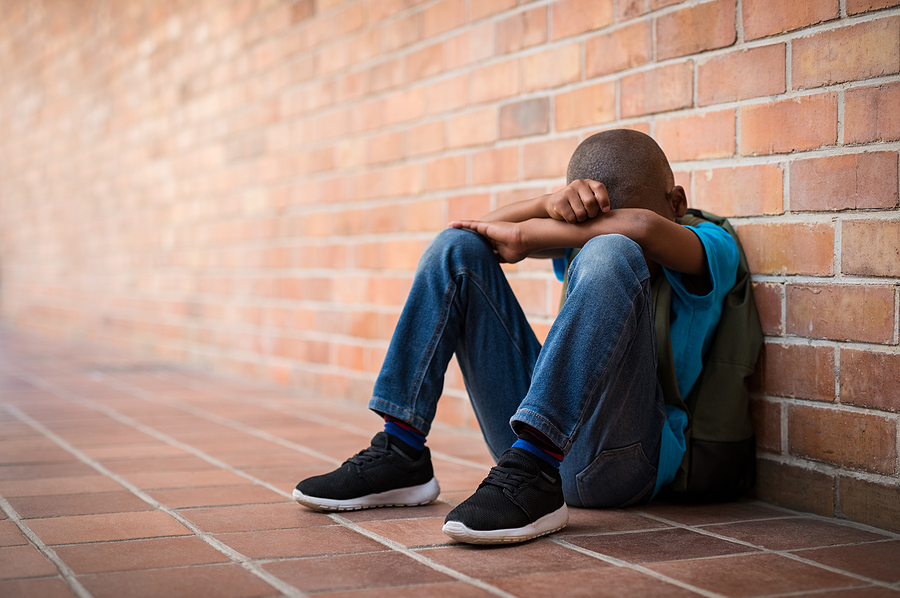
Any sort of child abuse is horrible, of course, but child sexual abuse in schools is particularly insidious. An innocent young person is being harmed by someone they trust – it could be a teacher, a coach, another student, or someone else. The mental and emotional damage can last for years.
At Sand Law LLC, we work passionately to represent the families of children who have suffered sexual abuse at school. If you have any reason to believe this has happened to your child, please get in touch with us as soon as you can for a consultation.
How to Tell if Your Child is Being Abused
Any sort of child abuse is horrible, of course, but child sexual abuse in schools is particularly insidious. An innocent young person is being harmed by someone they trust – it could be a teacher, a coach, another student, or someone else. The mental and emotional damage can last for years.
At Sand Law LLC, we work passionately to represent the families of children who have suffered sexual abuse at school. If you have any reason to believe this has happened to your child, please get in touch with us as soon as you can for a consultation.
A child can obviously be upset for a number of reasons. It could be an impending divorce, the tragic loss of a family member, a friend, or a pet. Just because a child is not happy, that doesn’t necessarily mean sexual abuse is occurring. However, if you notice any of the following signs, that could be an indication your child is being abused.
• Nightmares or sleep issues that you can’t explain.
• The child has a sudden fear of specific places or people.
• Your child starts talking about an older “friend” you didn’t know about, or all of a sudden starts receiving gifts for no apparent reason.
• The child may suddenly begin to seem distant or distracted on a regular basis.
• He or she may suddenly lose or gain weight.
• They might think their body is repulsive, or “bad.”
• Younger children may start to fight you when you try to take off their clothes, such as when it’s time to go to bed, to take a bath, or to go to the bathroom.
• They may also start to perform certain types of sexual acts with a stuffed animal or some other type of toy.
• The child may suddenly start using new words for their genital area
Who Causes Sexual Abuse in Schools?
Research indicates that the people who often times commit child sexual abuse in schools are some of the most popular teachers, ones who will typically work with children on an individual basis. While most of the abusers tend to be male (preying on female victims), there are also many instances where female authority figures will abuse male children. Sexual abusers also tend to target children who show signs that they need more substantial attention, or who want to have emotional bonds with adults.
However, there are many other cases where student-on-student sexual abuse occurs. It can happen on a playground, in a bathroom on campus, or even in the back of a school bus. According to an analysis of federal crime data, student-on-student sexual assaults actually outnumber adult-on-student assaults by a 7-to-1 ratio.
What is “Passing the Trash”?
This is a particularly disturbing issue, one that allows child sexual abuse to continue happening. “Passing the trash” basically means that known abusers resurface in other schools after they’re fired – continuing the cycle over and over again.
How is this possible? One of the reasons is that federal laws are basically worthless when it comes to removing predators from the education system once and for all. There are, of course, laws on the books that are supposed to protect students from sexual abuse, or any other sort of misconduct from school employees.
As incredible as it may sound, the U.S. Education Department has no system in place to monitor whether or not states are complying with the Every Student Succeeds Act. This Act, passed in 2015, is designed to force school districts that receive federal funds to refrain from hiring educators who have exhibited predatory behavior.
What to Do When Your Child is Being Sexually Abused at School
If you have any reason to believe your child is suffering from sexual abuse, there are a few actions you should consider taking. Here are some to keep in mind.
• Have a talk – Try to find out what’s going on, but remember to do so in as non-threatening a manner as is possible. Find a place where the child feels comfortable talking, and use a calm, casual tone. As difficult as it may be, ask whether someone has been touching the child. Listen carefully and let the child speak freely. If they say anything that causes you to feel concerned, make sure you follow up.
• Report your suspicions – It’s not easy reporting a crime like sexual abuse, but it gives you the chance to protect your child. Even if your child doesn’t want you to say anything – for fear of possible reprisals. Make sure you tell authorities that you’re concerned about your child’s safety.
• Talk to an attorney – You may also have grounds to file a sexual assault lawsuit against any liable parties whose negligence may have made if possible for the assault to occur. You’ll need the help of an experienced attorney, because you’ll need to produce evidence that the assault (or assaults) took place.
Sexual Abuse in Higher Education
Sexual abuse isn’t limited to elementary schools or high schools. It’s also prevalent on college campuses. When it happens to a college student, it can have devastating repercussions that can last for decades. Survivors may be hesitant to say anything for fear that they’ll no longer be able to remain at that particular college. They may give up their college career entirely, and struggle to pursue their preferred career as a result.
Contact an Attorney As Soon as Possible
No matter what age a young person may be, any sort of sexual abuse committed by an educator is beyond reprehensible. Those responsible, either directly or indirectly, must be held accountable.
Please get in touch with Sand Law as soon as you can if you suspect that a loved one has been the victim of school-related sexual abuse. We’ll tell you what to expect, and then start to begin gathering the evidence needed to prove your case. You can use our online form, or you can give us a call at (651) 362-4173 for a free consultation.

